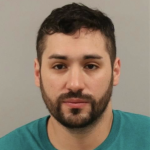TRENTON – Attorney General Gurbir S. Grewal Jan. 15 led a multi-state call for the Trump administration to withdraw a proposed new rule that would deny student teaching and research assistants at private colleges the right to organize and bargain collectively.
According to a release, at issue is a rule proposed by the National Labor Relations Board (NLRB) that would exclude student workers from the definition of “employee” under the National Labor Relations Act (NLRA), and thereby deprive them of the NLRA’s protections for labor organizing and collective bargaining.
Graduate student assistants handle a significant amount of the teaching work at private colleges and universities. The proposed rule would reverse a 2016 NLRB ruling that such student workers qualify as employees under NLRA, and are therefore able to organize into unions and bargain collectively.
Student-workers at public colleges and universities have been bargaining collectively with the institutions that employ them since the late 1960s with largely positive results.
In a letter Jan. 15 to the NLRB, Grewal – joined by 12 other Attorneys General — called the effort to end collective bargaining by teaching and research assistants at private colleges and universities “an assault on workers’ rights.”
The rule could lead to an “exhausted and underpaid student workforce,” the letter states, and deter promising students from pursuing academic careers.
That, in turn, could harm businesses, non-profits and governmental institutions “that depend on student workers for innovative teaching and research.”
Grewal and the other Attorneys General also assailed the rule as one that oversteps the NLRB’s statutory reach, infringes on the legislative authority of Congress, and is contrary to the text of the NLRA.
“Student workers at private colleges and universities should continue to have the same right to negotiate for fair pay and better working conditions that their counterparts at public institutions of higher learning have had for decades,” stated Grewal.
“This rule would strip away the hard-earned labor rights of student workers in service of the ‘bottom line’ at private colleges and universities,” Grewal stated.
Furthermore, to the extent that state courts and labor relations boards often look to federal law when interpreting state labor relations statutes, this rule could have implications for student workers at public colleges and universities as well.
“The proposed rule recognizes graduate student assistants as employees but uses a made-up distinction that their relationship with their school is primarily educational, not economic, to deny them the right to organize and collectively bargain under the NLRA,” stated Labor Commissioner Robert Asaro-Angelo. “The tens of thousands of student workers who will be affected by this action are employees both in law and in fact, and should not be denied the right to organize and bargain collectively.”
According to the multi-state letter to the NLRB, the participating states’ colleges and universities employ more than 42,000 graduate teaching assistants, as well as thousands more graduate research assistants and undergraduate student workers.
The letter notes that many student workers struggle to make ends meet “on a subsistence-level stipend,” while balancing teaching and research duties with their own course work and family commitments.
For such student workers, the letter asserts, the ability to organize and bargain collectively is “essential” to securing decent pay and living conditions.
To illustrate the dollars-and-cents reality of the issue, the letter points out that the annual mean wage for a graduate teaching assistant in the New York City metropolitan area is $38,370 – well below what the Economic Policy Institute considers an adequate standard of living for the region ($51,323).
“This chasm between wages and living costs has forced many student workers – especially those with families and limited financial resources – to rely on debt and outside employment,” the letter observes.
While the NLRB contends that collective bargaining by student workers is a threat to the discretion of private institutions to decide such things as course content, student body composition and graduation standards, the letter rejects this argument as unsupported by the history of collective bargaining at public colleges and universities.
Contrary to the NLRB’s vision of organized student workers interfering with the academic authority of faculty and administrators, history shows student workers at public colleges and universities have typically focused on such traditional labor issues as wages, working conditions, leave time and employee benefits.
“The board need not continue down this misguided path,” the letter led by Grewal asserts. “Instead, it should withdraw the proposed rule and allow the process of collective bargaining at private colleges and universities to continue unimpeded.”








